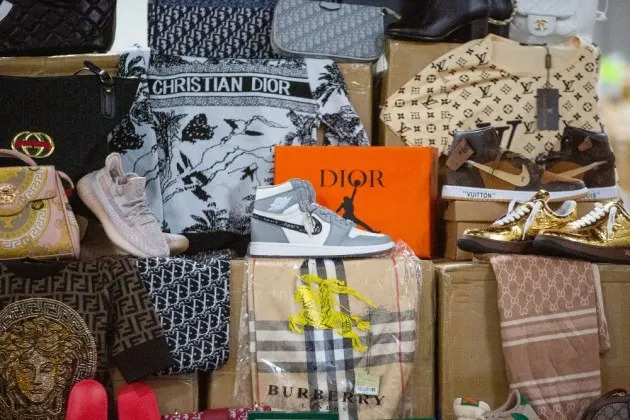News
AAFA Calls Out Facebook and Instagram as Counterfeit-Laden ‘Notorious Markets’

The American Apparel and Footwear Association ( AAFA ) wants Facebook, Instagram, Whatsapp and Threads added to the U.S. Trade Representative’s (USTR) Notorious Markets List, and it’s characterizing the social platforms as hotbeds for fraud and counterfeits .
The Washington, D.C.-based industry trade group submitted its recommendations for the 2024 Review of Notorious Markets for Counterfeiting and Piracy to the Office of the USTR last week, calling out the Meta-owned platforms for the fifth year in a row. The annual report compiles a list of physical and digital marketplaces that are known to facilitate substantial copyright piracy and trademark counterfeiting against U.S. brands.
More from Sourcing Journal
AAFA’s comments highlighted a lack of proactive controls, insufficient measures to address repeat infringers and the proliferation of fraudulent ads as reasons for targeting the sites and apps. The group said feedback from its members influenced the list of Notorious Markets List submissions, which also included AliExpress, DHgate and Shopee.
In a 37-page report, AAFA wrote that “The counterfeit problem continues to manifest itself through the sale of fake clothes, shoes, and accessories every hour of every day.”
“Regrettably, AAFA member products again top the 10 commodities by MSRP in the U.S. government’s latest FY 2023 IP Seizure report. This trend has remained consistent over time,” the letter stated.
The group reiterated the dangers that counterfeit products or “dupes” can pose to consumers. It cited its own study wherein AAFA tested 47 counterfeit products purchased on popular online platforms and found that 17 of them (more than 36 percent) contained “dangerously high levels of poisonous materials, such as lead, arsenic, and phthalates.”
“The current reactive status-quo, which stresses after the fact online enforcement, fails to significantly catch counterfeits,” the letter continued. “This imbalance places the burden on brands to identify, flag for the platform, and follow-up recurringly, to curtail the promotion and sale of counterfeits that are already being marketed online.”
Counterfeits are already pulling market share away from legitimate brands, the group argued—and those brands are also having to invest “millions” of dollars to ensure that the products they produce are safe for consumers and compliant with ESG guidelines and ethical labor standards. “Counterfeiters bypass each of these checkpoints,” putting them at an advantage over legitimate operations, the letter said.
The onus should be on web-based platforms where sales take place to address the sale of counterfeits, AAFA wrote. “To effectively address the promotion and sale of counterfeits, online platforms must take steps to make sure counterfeits do not get offered online in the first place. These platforms must be subject to the same requirements, and face equivalent liabilities, as brick-and-mortar businesses when it comes to the promotion and sale of counterfeit products that harm American consumers.”
With regard to Meta platforms in particular, AAFA wrote that one of its member organizations reported more than 10,000 enforcement actions taken on Facebook from January through August 2024, along with over 9,300 enforcement actions on Instagram during the same period. “These are by far the most time and resource intensive social platforms in global brand protection enforcement for this AAFA member when compared to any other social platform,” the group wrote. The most popular locations for listings removals were Ukraine and the Republic of the Philippines, underscoring the platforms’ global reach.
In the month of August alone, another member shared that it took enforcement action against approximately 80 posts, with 30 percent compliance, on Instagram. “Meta is a clear outlier in compliance and attention to protect IP,” AAFA wrote.
Meanwhile, a third member reporting on behalf of five brands revealed that IP abuse on Meta platforms has been a “persistent issue” that has necessitated that the company independently detect and pull down over 4,000 fraudulent listings each month. Reported incidences are growing by 20 percent to 30 percent each year for this company.
AAFA also re-nominated frequent fliers AliExpress, owned by Alibaba Group Holding Limited, as well as DHgate Group, also headquartered in China, for the Notorious Markets List. Singapore-headquartered Shopee Pte. Ltd. was nominated for a sixth time since 2018 due to its “lack of progress” in addressing repeat infringers on its platform.
The group’s submission detailed more experiences from member companies with such platforms, like one entity that shared that counterfeit volume nearly tripled year over year from 2023 to 2024, and another that said it spent more than $1 million on anti-counterfeiting measures over the past year.
“AAFA and its members are fed up with the lack of accountability for platforms, regardless of where they are headquartered,” AAFA CEO and president Steve Lamar wrote in the letter to the federal government agency. “These are global issues. We are looking to USTR, via this process, to address the counterfeiting issue holistically and not in a siloed, country by country, approach.”

